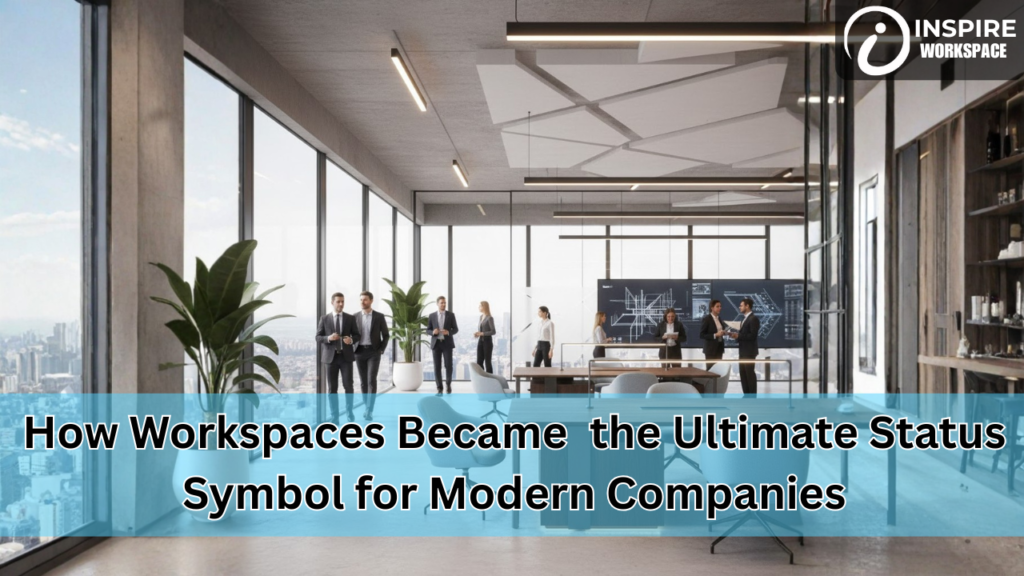What Are the Hidden Advantages of Private Offices?
Intoduction Office space design is an important factor in productivity and the success of a business. While open plan is all the rage, private office space continues to offer some underappreciated strategic benefits. Hence, in most cases the positive aspects of these are neglected by businesses that simply think they save cost or take any system and choose to use reasonable accommodation approach.Private offices offer more than just closed doors and individual desks. They offer structural, management and performance benefits which can directly impact steady growth of an organization.Private offices produce a space for focused thought and intentional action. They’re the supporters of those who need to concentrate, be discreet and continually move. The benefits are more than just quiet, and they include psychology, branding, efficiency and leadership effectiveness. By knowing these end benefits, companies can make smarter investments in real estate. Improved Focus and Ability to Deep Work Independent workspaces reduce the mental load by getting rid of visual and auditory interferences. There is less cut-through from neighbouring chats, movement and shared equipment sounds. This setting also makes deep work easier than elsewhere, increasing task accuracy and completion rate. Solving complex problems is easier when human mental energy is not disturbed. Concentrated work means better quality, fewer mistakes. Workers spend less time recovering attention after they are interrupted. This leads to increased performance and efficiency over a working day. Private offices also eliminate multitasking habits, which can make you less productive overall. Those who do analytical, creative or confidential work benefit the most.But they perform better when interrupted thinking is the default. Privacy That Strengthens Trust and Professional Confidence Confidentiality helps employees feel safe during crucial conversations and decision-making. Workers feel more secure sharing thoughts without the worry of being judged. This psychological safety enables innovation and candid conversation. Private office space lets you have personal consultations with clients, partners or even alone. It is a safeguard for classified and strategic information. Confidentiality is vital for building trust within the team. Private space employees feel respected and working. This brings importance as well, which results in job satisfaction and loyalty. When people feel trusted with responsibility, they perform better. Improved Leadership Presence and Authority Private offices provide a clear sense of hierarchy to facilitate leadership. They give leaders room to think about a strategy without ongoing interruption. In controlled situations, decision-makers can more deeply process information. It also helps leaders better manage meetings and discussions. This reinforces the presence of leadership in an organization. Leaders seem more approachable to employees during planned encounters. This type of balance increases respect and does not reduce retreat friendliness. Less Stress and Better Mental Health Open offices are often blamed for mental exhaustion and sensory overload. Private offices can also help cut down on noise-related stress and anxiety. Workers tend to feel more emotionally even at work. Relatively controlled environments also enable people to control their environment (such as lighting, temperature, seating preference etc.). This individual control for such far better convenience and lessened bodily harm. Mood, energy and productivity is impacted by comfort. Less stress equals less burnout and sick time. When stress goes down, employees enjoy better work-life balance. Higher Productivity Through Personal Ownership Separate offices foster a sense of ownership in the workplace. The staff take responsibility This sense of ownership promotes better time and task management. We all give space respect that feels personally allotted. This means everyone is working in a cleaner environment and there are better practices. Performance Enhanced when schedules are without disruption. Employees also have the freedom to tailor their work environment for productivity. Self improvement will help you grow your sense of self and closer to the best. More Powerful Brand and More Professional Impression Private offices enhance the professional image of a company. Private offices are also associated by clients with credibility, stability and gravitas. Such a consideration affects trust and business making decisions. Private offices are a physical expression of corporate culture and identity. They show they value their employees and long-term success. This helps enhance the corporate and external brand. Private office companies seem more legit when they host clients. This is a plus in finance, consulting, and law. Long-Term Cost Efficiency Private rooms minimize some of these productivity drains, potentially saving engaged couples hours in the long-run. Less distraction equals less waste of working time. Increased efficiency balances higher rent over time. Retention is better when morale and comfort are high. Decreased turnover does prevent the costs of hiring and training new staff. We know that stable teams do better, faster. Private offices also drive down spending on health. Less stress means less sick days. Improved Hybrid and Senior Positioning Individual offices accommodate flexible schedules and hybrid work arrangements.Workers returning from remote work need destination environments. Private zones for a cohesive working communicate Who said that a period of crisis makes you talk less to your colleagues? Leadership positions need to be discreet, strategic and clandestine. It follows naturally that private offices are suited to executive duties. They foster mentoring, they reviews and tough conversations. Companies that are scaling leadership team members enjoy private office setups. Key Hidden Advantages Conclusion If anything, today’s workplaces are centered on collaboration rather than concentration. However, sustainable productivity requires balance. Private offices offer the structure that high-quality work depends upon. They enable staff to provide consistent and excellent results. They also safeguard mental health and professional integrity. Businesses planning long-term growth ought to reconsider the value of private office. In whole, the inherent benefits are subtly outweighing obvious costs. Private offices continue to be a wise investment in people and performance. They are, when designed well, good for both people and institutions. The real benefit is in facilitating places where work actually occurs.










